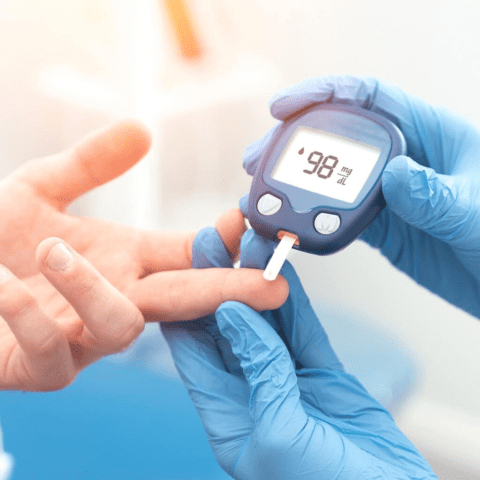Diabetes, a chronic condition affecting millions worldwide, poses significant health challenges but can be effectively managed with the right knowledge and lifestyle adjustments.
Understanding diabetes is crucial not only for those diagnosed with the disease but also for their families and communities.
This article delves into the difficulties of diabetes, exploring its types, symptoms, and the latest advancements in management and treatment.
By equipping yourself with a thorough understanding of diabetes, you can take proactive steps to manage the condition, improve quality of life, and reduce the risk of complications.
Whether you are newly diagnosed, a caregiver, or simply seeking to enhance your knowledge, this guide aims to provide comprehensive insights into living well with diabetes.
What is Diabetes?


Diabetes is a chronic health condition that affects how your body turns food into energy.
When you eat, your body breaks down carbohydrates into glucose, which enters the bloodstream.
The pancreas then releases insulin, a hormone that helps glucose enter the cells to be used for energy.
In people with diabetes, this process malfunctions, leading to elevated blood glucose levels.
There are three main types of diabetes: Type 1, Type 2, and gestational diabetes, each with its own causes and management strategies.
Types of Diabetes


1-Type 1 Diabetes: This form of diabetes is an autoimmune condition where the body attacks insulin-producing cells in the pancreas.
It is typically diagnosed in children and young adults, although it can occur at any age.
Individuals with Type 1 diabetes require lifelong insulin therapy, as their bodies produce little to no insulin.
2-Type 2 Diabetes: The most common form, Type 2 diabetes, occurs when the body becomes resistant to insulin or the pancreas does not produce enough insulin.
It is often associated with older age, obesity, and a sedentary lifestyle, although genetics also play a significant role.
Type 2 diabetes can sometimes be managed with lifestyle changes and oral medications, but some individuals may also require insulin therapy.
3-Gestational Diabetes: This type occurs during pregnancy and typically resolves after childbirth.
However, women who have had gestational diabetes are at higher risk of developing Type 2 diabetes later in life.
Gestational diabetes requires careful monitoring and management to ensure the health of both the mother and the baby.
Symptoms and Diagnosis
The symptoms of diabetes can vary depending on the type and severity. Common symptoms include:
Frequent urination
Excessive thirst
Extreme hunger
Unexplained weight loss
Fatigue
Blurred vision
Slow-healing sores
Frequent infections
If you experience any of these symptoms, it is essential to consult a healthcare provider.
Diabetes is diagnosed through blood tests that measure blood glucose levels. The most common tests are:
1- Fasting Blood Sugar Test: Measures blood sugar after an overnight fast.
Oral Glucose Tolerance Test: Measures blood sugar before and after consuming a sugary drink.
2- Hemoglobin A1c Test: Reflects average blood sugar levels over the past two to three months.
Management and Treatment
Managing diabetes involves a combination of lifestyle changes, monitoring, and medications.
The primary goals are to keep blood glucose levels within a target range, prevent complications, and maintain overall health.
1- Healthy Eating: A balanced diet rich in fruits, vegetables, whole grains, and lean proteins can help manage blood sugar levels.
Carbohydrate counting and meal planning are crucial for people with diabetes to ensure a steady release of glucose into the bloodstream.
2- Physical Activity: Regular exercise helps the body use insulin more efficiently and can lower blood glucose levels.
Activities like walking, cycling, and strength training are beneficial. Aim for at least 150 minutes of moderate-intensity exercise per week.
3- Monitoring Blood Sugar: Frequent monitoring allows individuals to track their blood glucose levels and make informed decisions about diet, exercise, and medications.
This is typically done using a glucometer or a continuous glucose monitor (CGM).
4- Medications: Depending on the type of diabetes, medications may include insulin injections, oral hypoglycemic agents, or other injectable drugs.
It is essential to follow the prescribed treatment plan and adjust as needed under the guidance of a healthcare provider.
5- Education and Support: Diabetes education programs and support groups can provide valuable information and emotional support.
Learning about the condition, staying informed about new treatments, and sharing experiences with others can empower individuals to manage their diabetes effectively.
Preventing Complications
Long-term complications of diabetes can include cardiovascular disease, nerve damage (neuropathy), kidney damage (nephropathy), eye damage (retinopathy), and foot problems.
To reduce the risk of these complications:
Keep blood pressure and cholesterol levels under control.
Schedule regular check-ups with healthcare providers.
Take medications as prescribed.
Maintain a healthy weight.
Avoid smoking and limit alcohol consumption.
Advances in Diabetes Treatment
Research and innovation continue to improve diabetes management. Recent advancements include:
1- Artificial Pancreas Systems: These devices automate insulin delivery based on real-time glucose monitoring, reducing the burden of manual insulin adjustments.
2- New Medications: Novel drug classes, such as SGLT2 inhibitors and GLP-1 receptor agonists, offer additional options for blood sugar control and may provide cardiovascular and renal benefits.
3- Digital Health Tools: Mobile apps and digital platforms help track blood glucose levels, diet, and physical activity, offering personalized insights and reminders.
Conclusion
Living with diabetes presents challenges, but with a comprehensive understanding of the condition and a proactive approach to management, individuals can lead healthy, fulfilling lives.
By adopting a balanced diet, staying active, monitoring blood sugar levels, and adhering to treatment plans, people with diabetes can control their condition and reduce the risk of complications.
Ongoing research and technological advancements continue to enhance diabetes care, offering hope for even better management strategies in the future.







